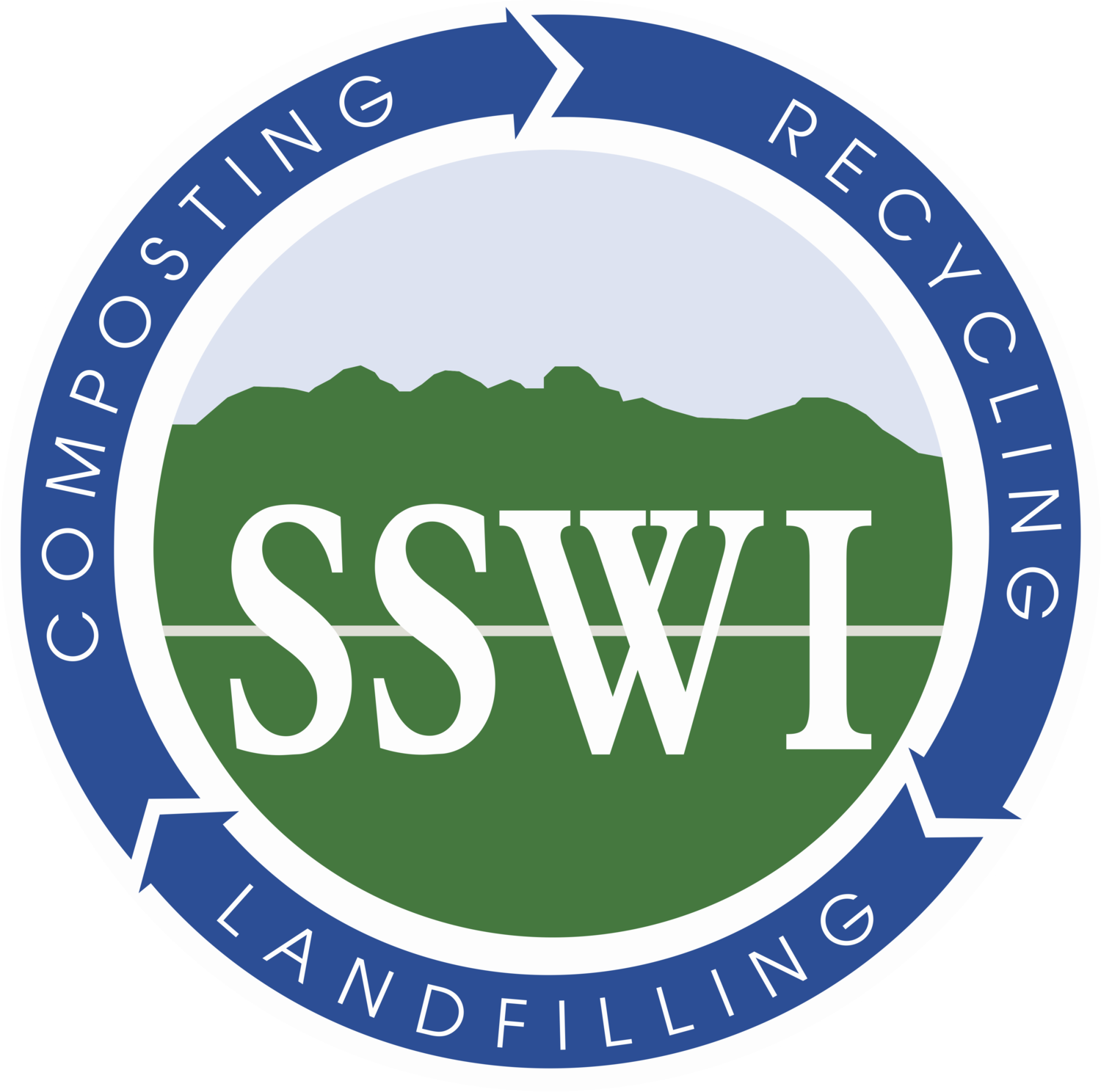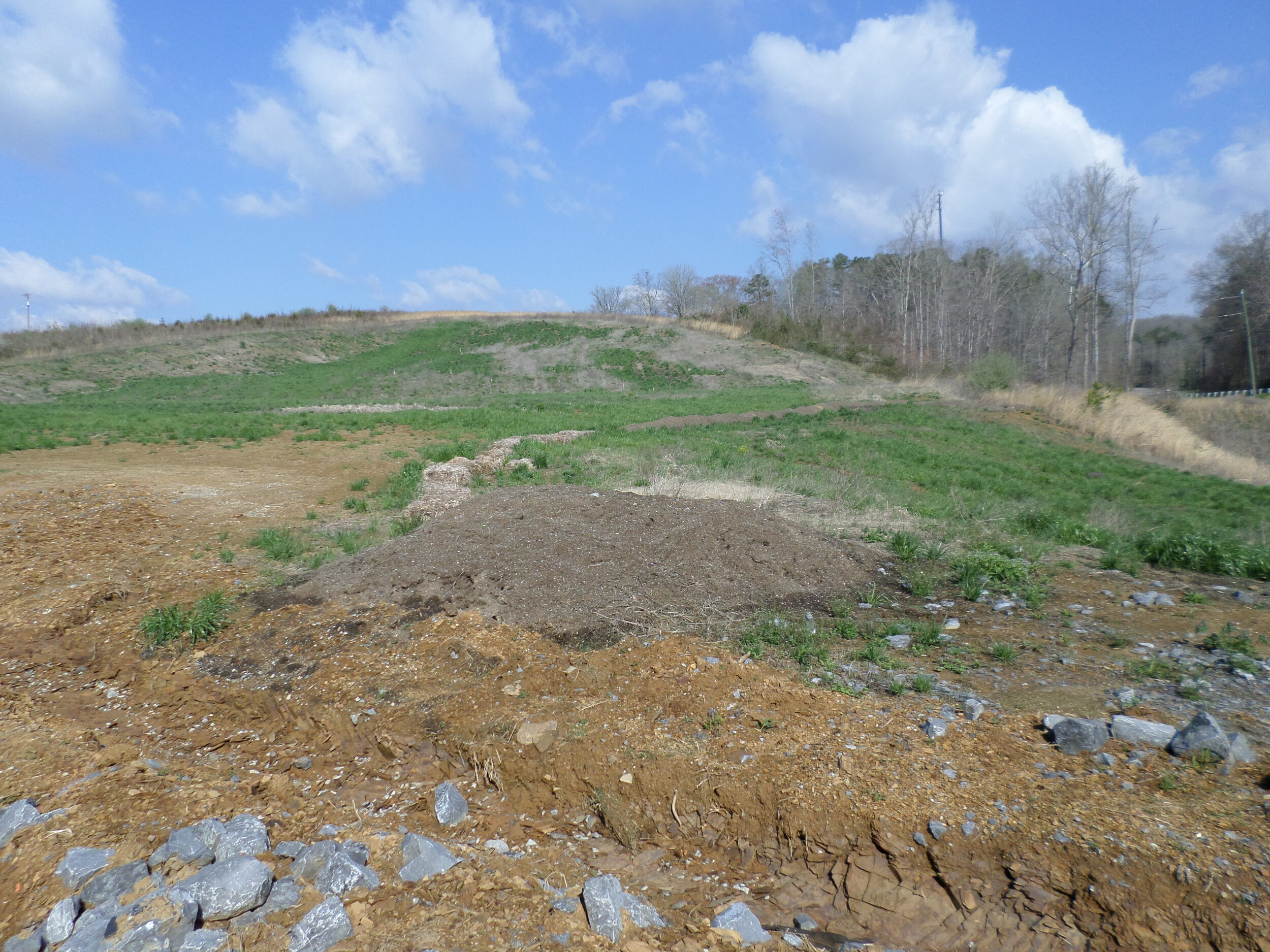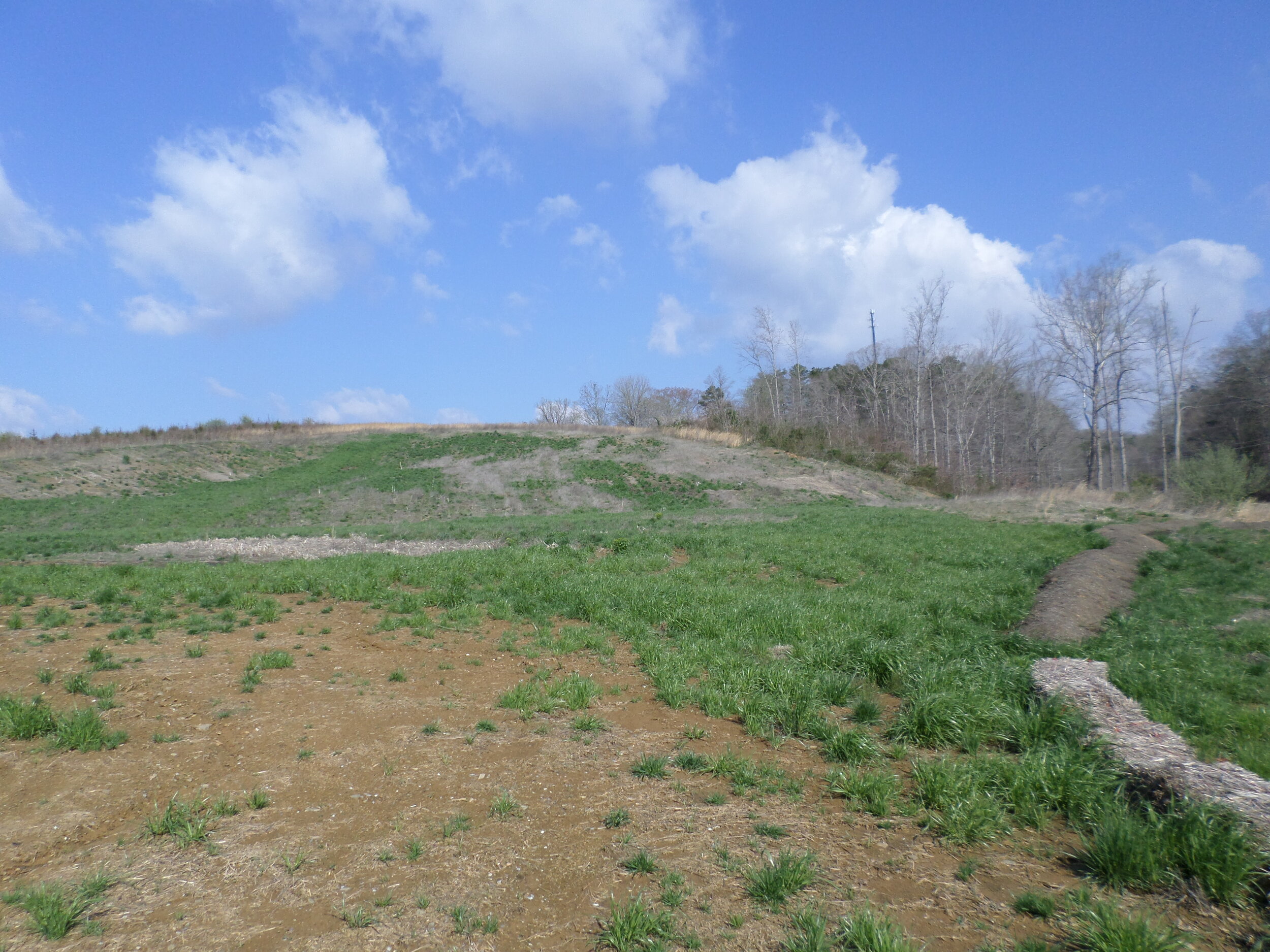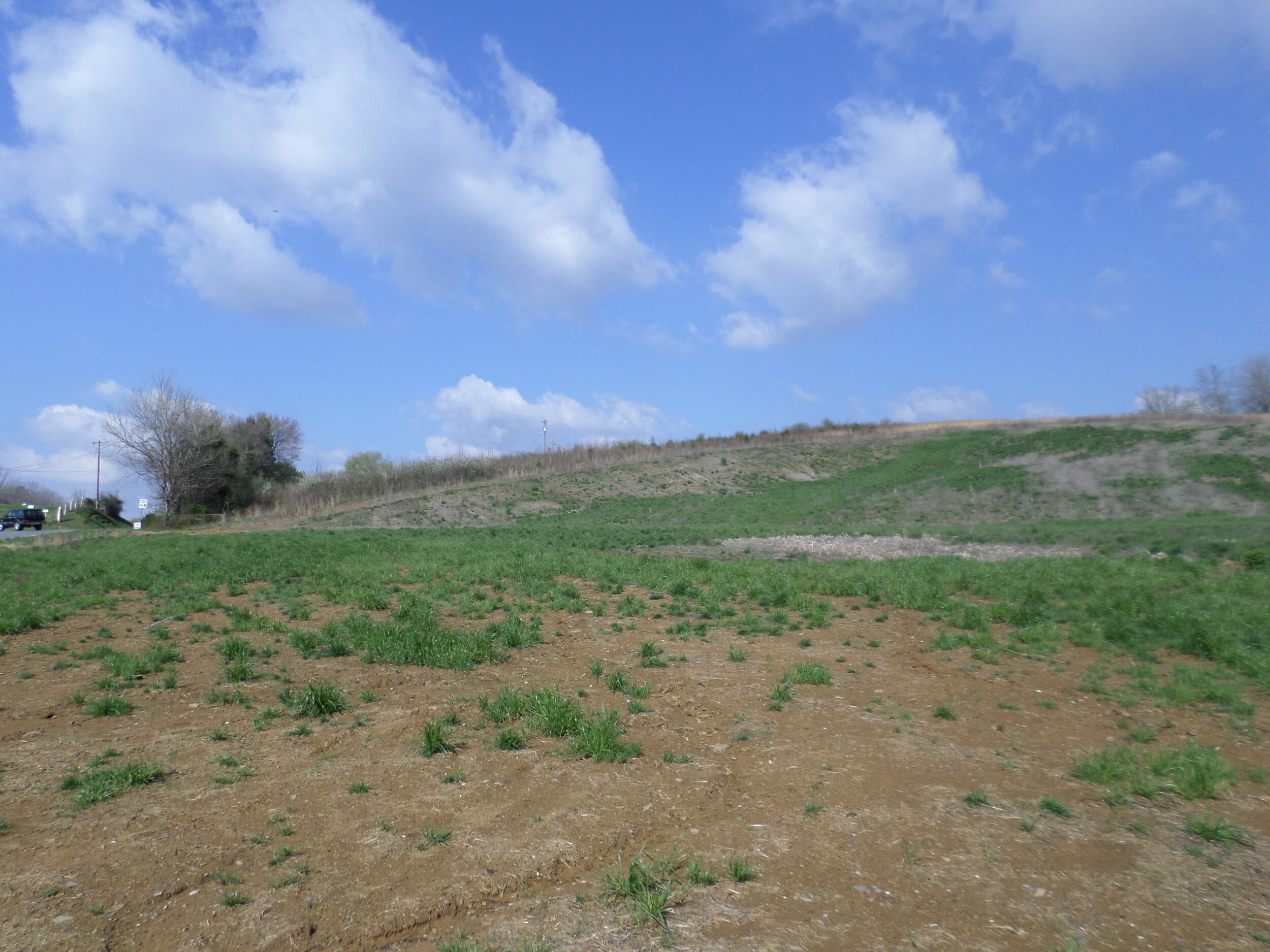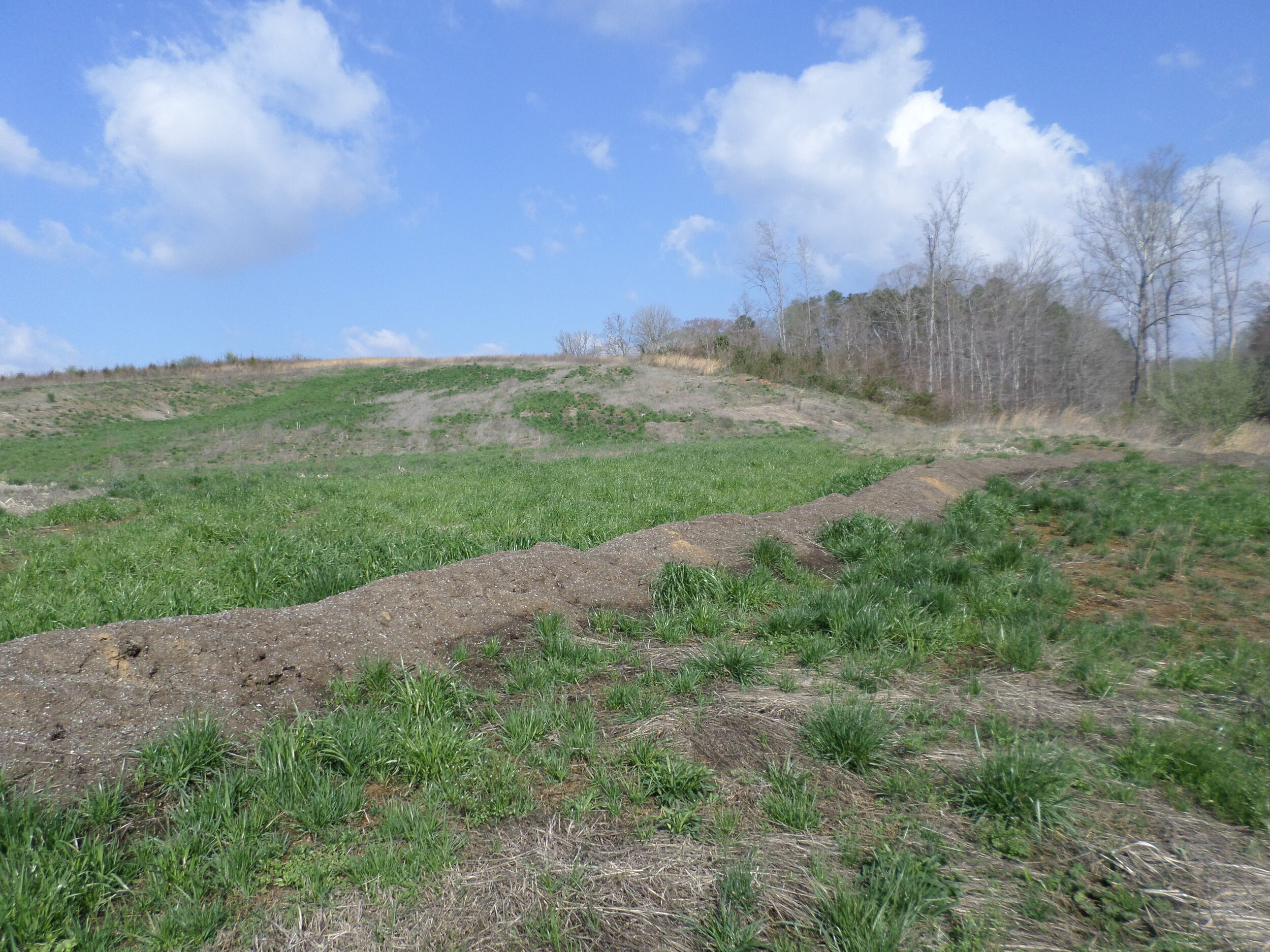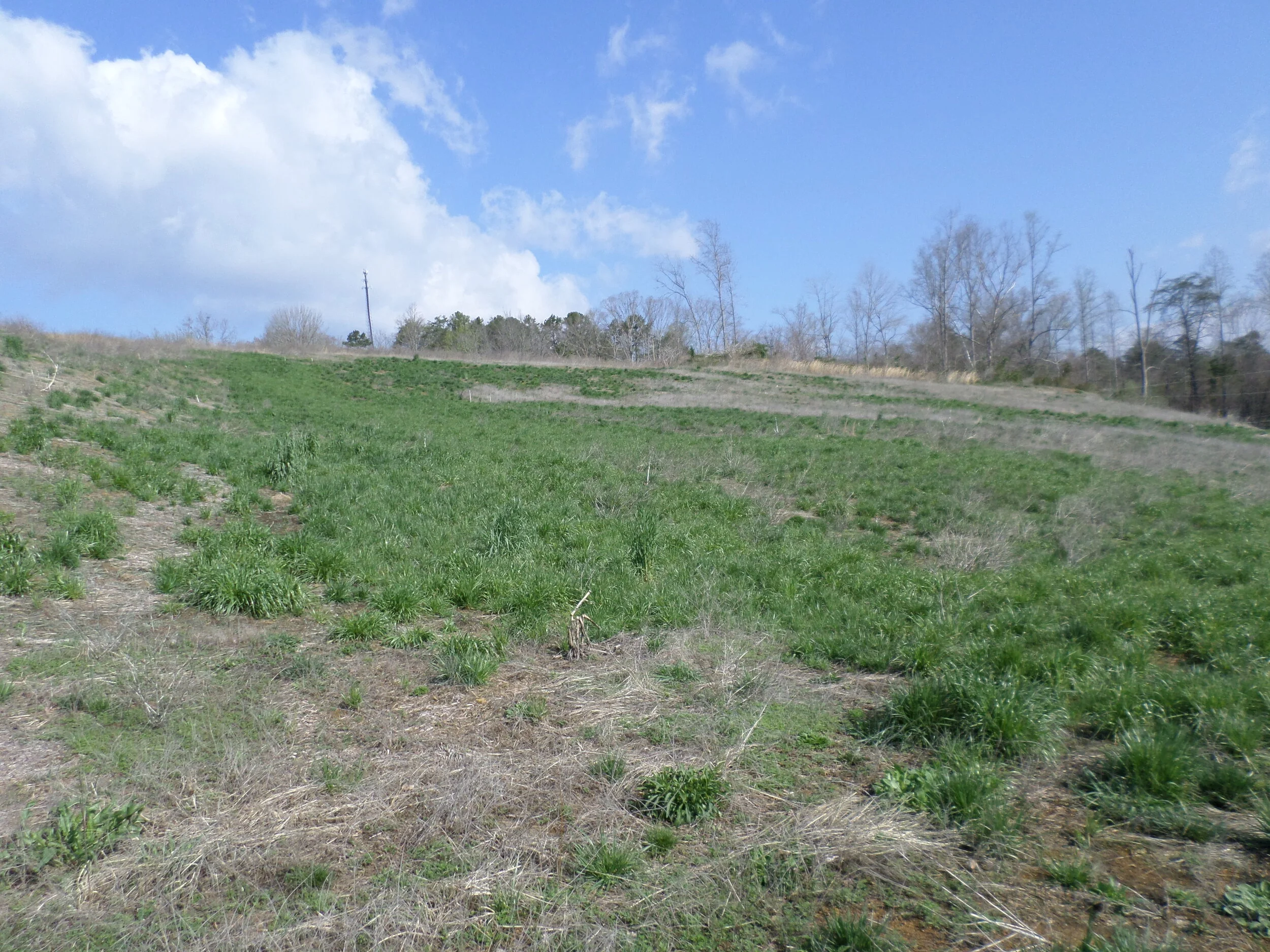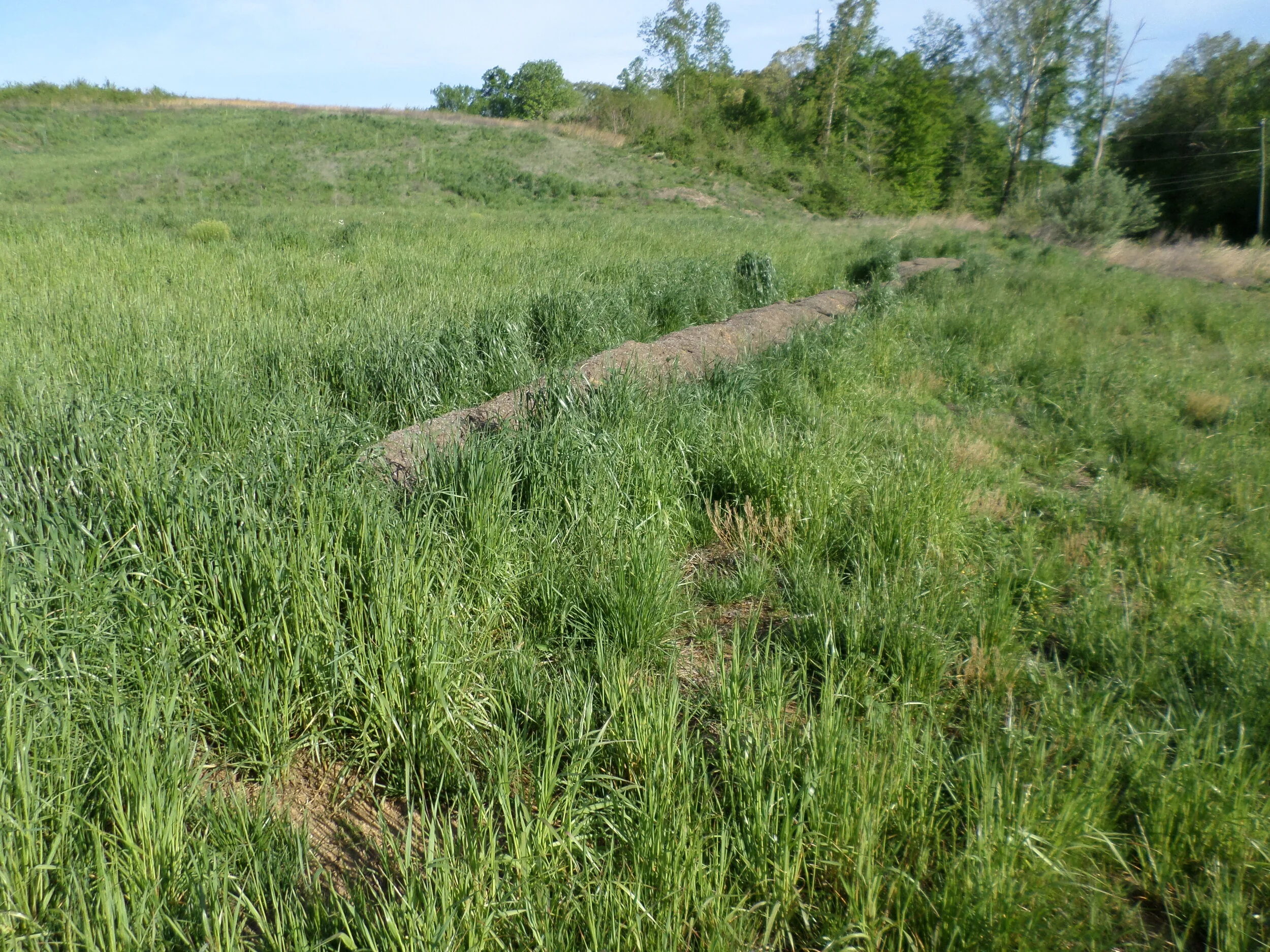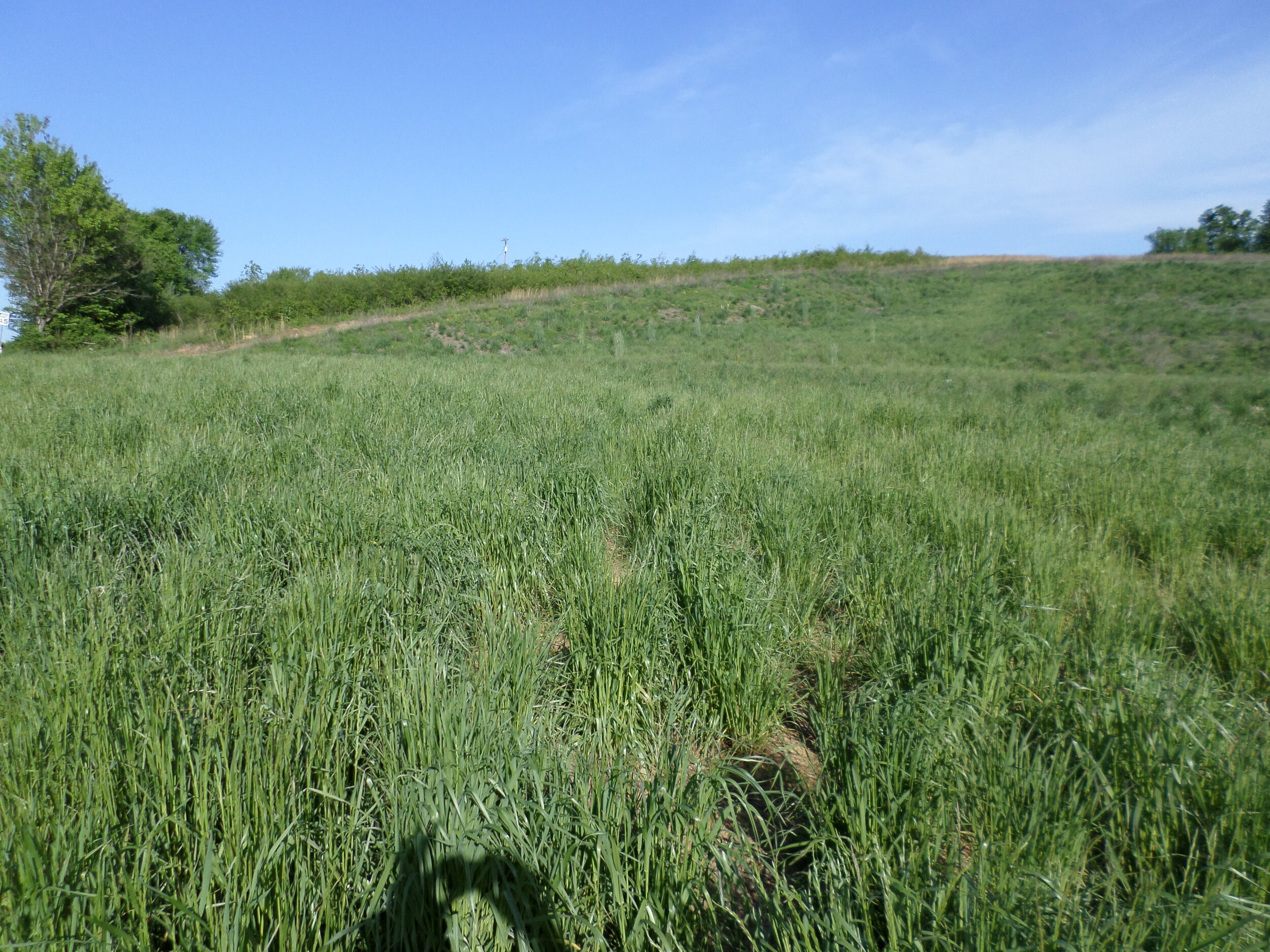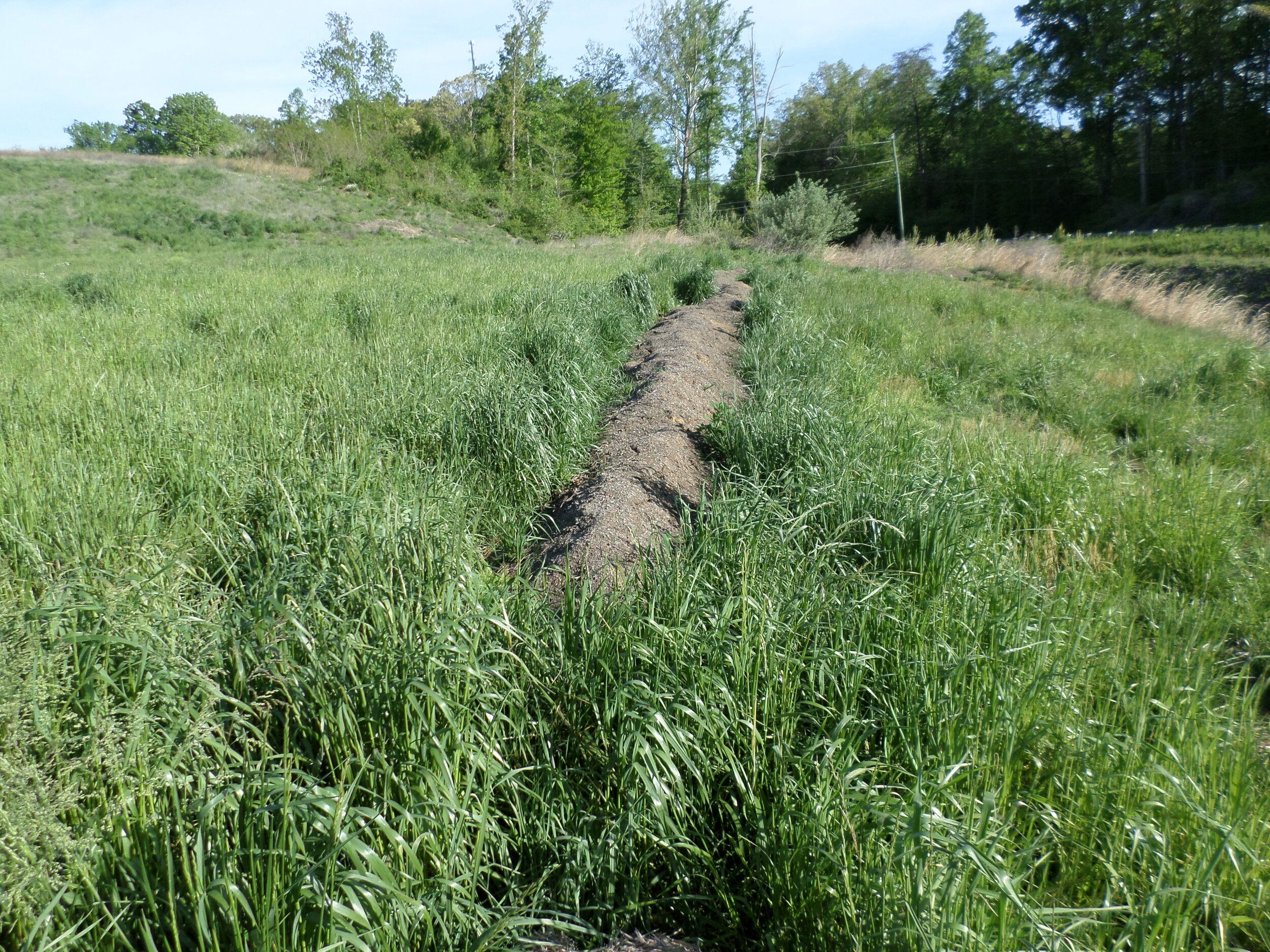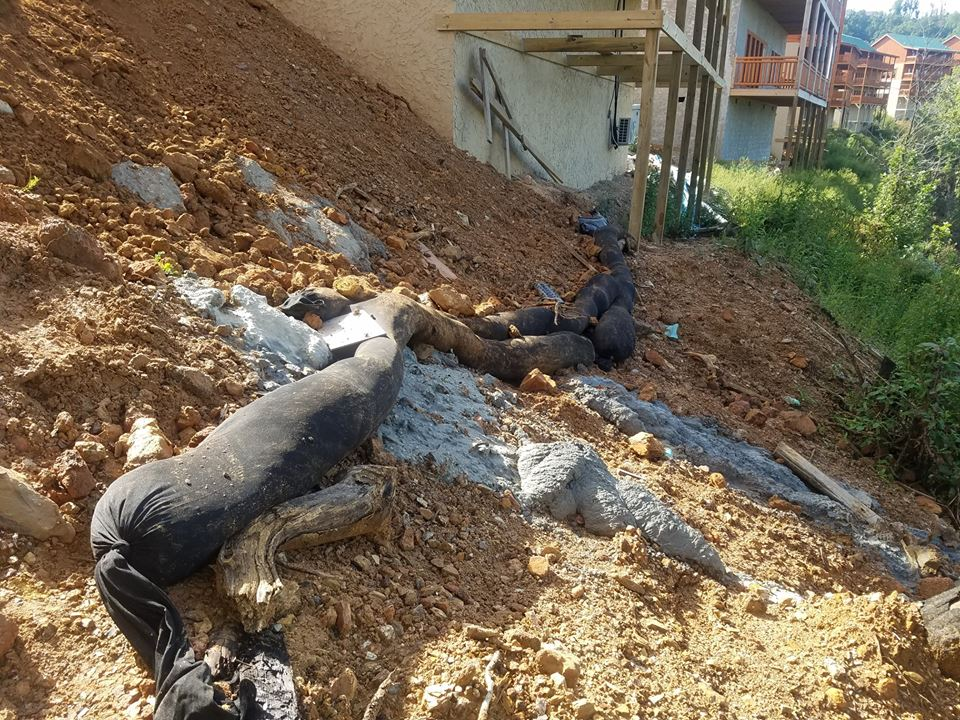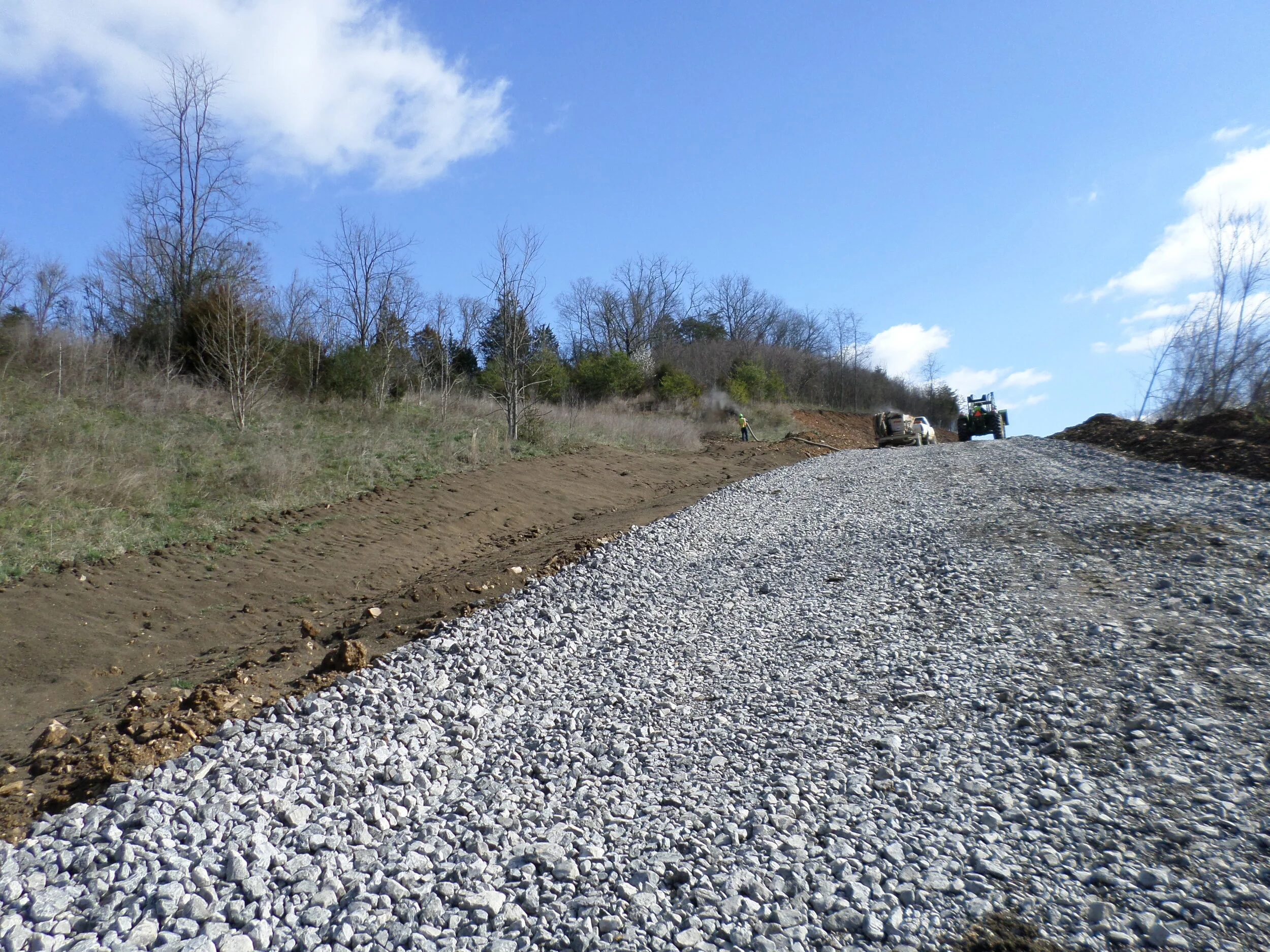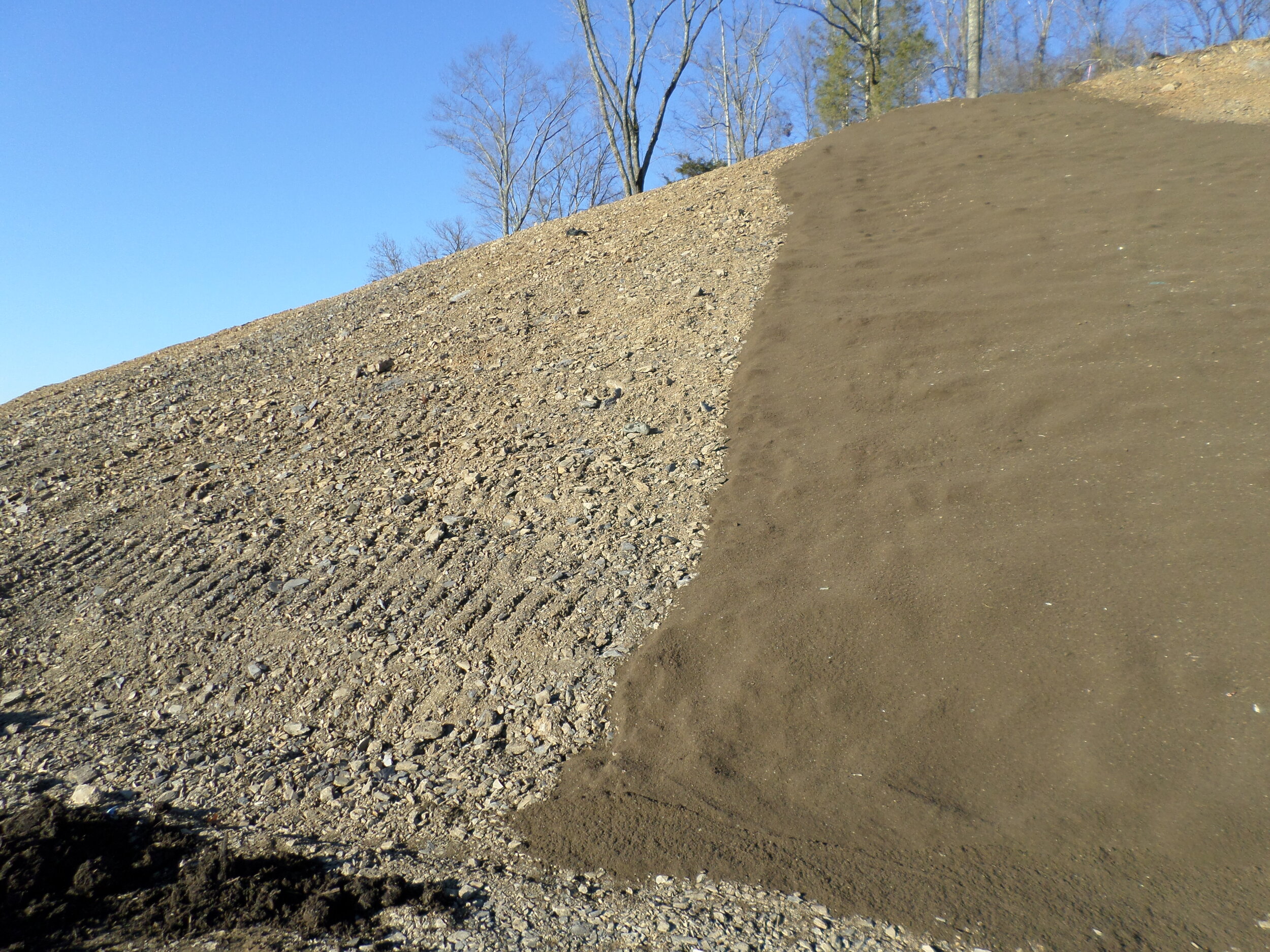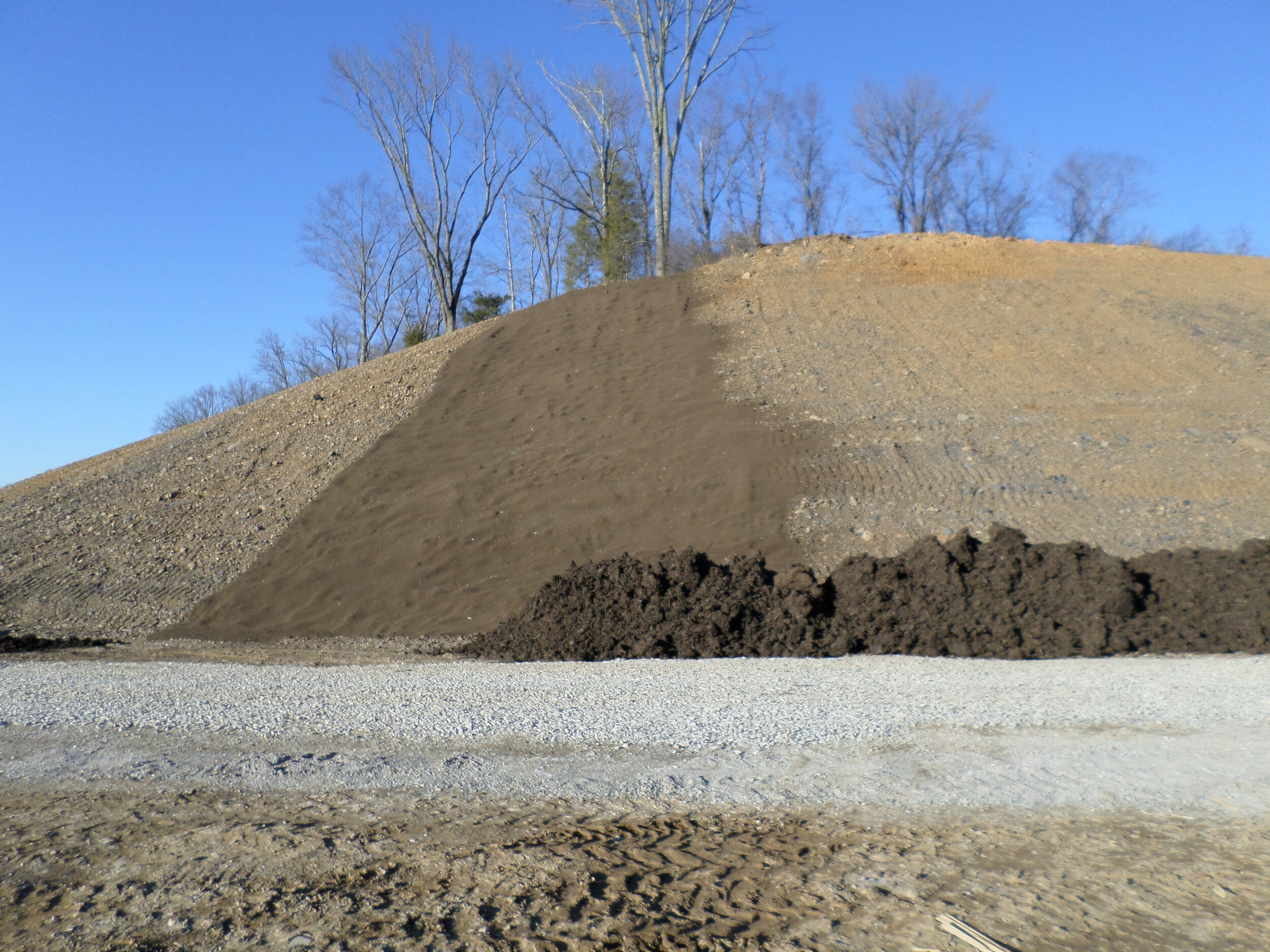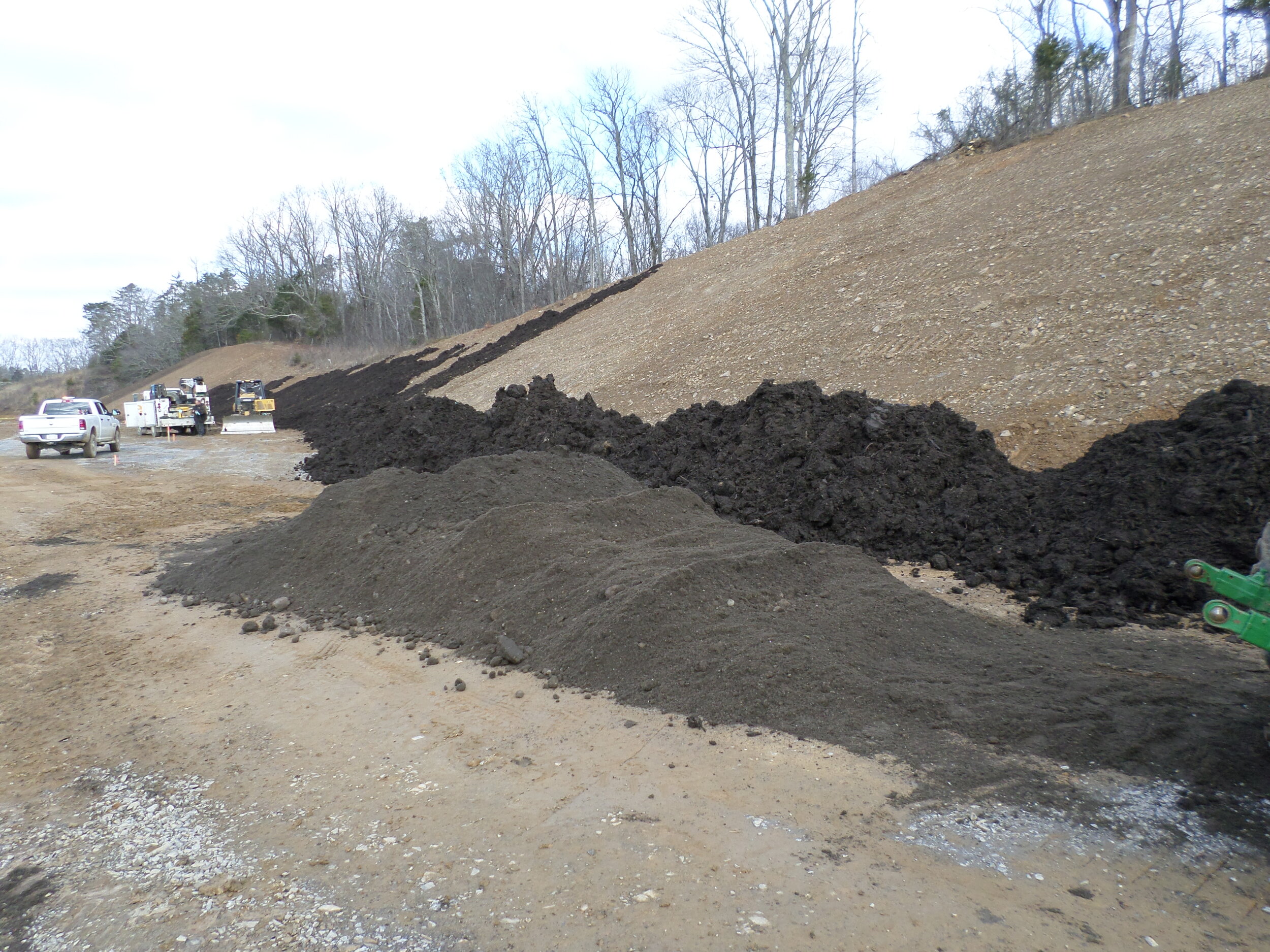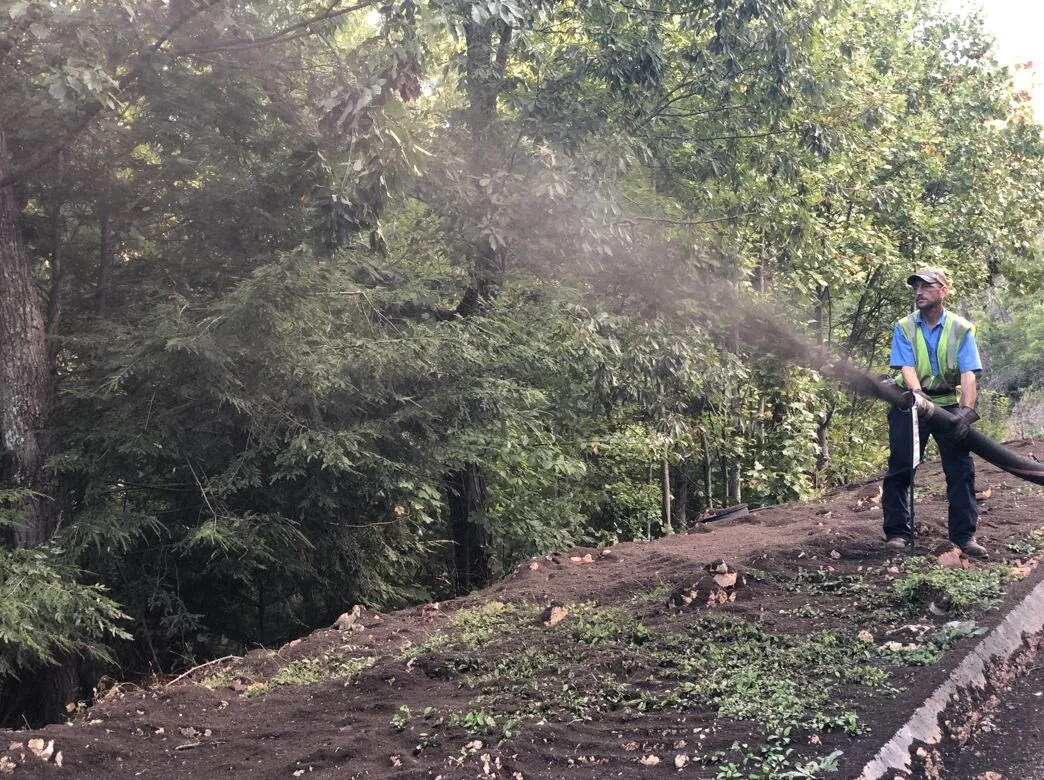Vegetation
Our compost can be used to enhance plant growth through soil amendments. Our compost is best used by mixing with dirt to create a soil mixture or simply as a top layer. Our Grade A compost is very nutrient rich, so it is important to never use our compost as the sole use to plantings. The acidity can fry vegetation when used incorrectly. We always recommend at least a 50/50 blend with soil or a slight top layer of non more than 2 inches depth applied to the surface. As well as the great nutrients, our compost also has a high water holding capacity. This allows plants to absorb more of the needed hydration and nutrients. To view some examples of our compost used on local projects, click Here.
Erosion Control
Erosion problems can be solved by mulching, netting, or chemical stabilization as well as compost in the form of socks, blankets, or berms. A compost sock is a mesh tube filled with compost and is a green alternative of silt fences, which are used for erosion control as well as prevention of sediment stormwater runoff. Our compost socks create berms that act as walls of compost and are placed perpendicular to sheet flow runoff that prevents erosion in disturbed areas to retain sediment. This is especially useful on extreme slopes to stop or direct sediment runoff at the bottom. A compost blanket can be used to control erosion on steep surfaces as well. It spread wide and thin with a pneumatic blower. The blanket allows the compost to adhere to the existing soil and promote root growth. With the compost’s high water holding capacity, a blanket can absorb more water and hold it in place, rather than running down the slope. To view some examples of our compost used on local projects, click Here.
Compost Use Guidelines
All of our compost is given away to the public for free, and it can be a great resource for locals. We want everyone to get the best outcome from using our compost. Always use compost as a mixture with soil to get the best results. Apply as a blend with dirt or as a top layer to gardens and lawns. Our compost use guidelines are listed below.
We would love to see how our compost has benefited you! Email Lhoward@seviersolidwaste.com with photos if you want to see your compost projects featured on our website or media.
